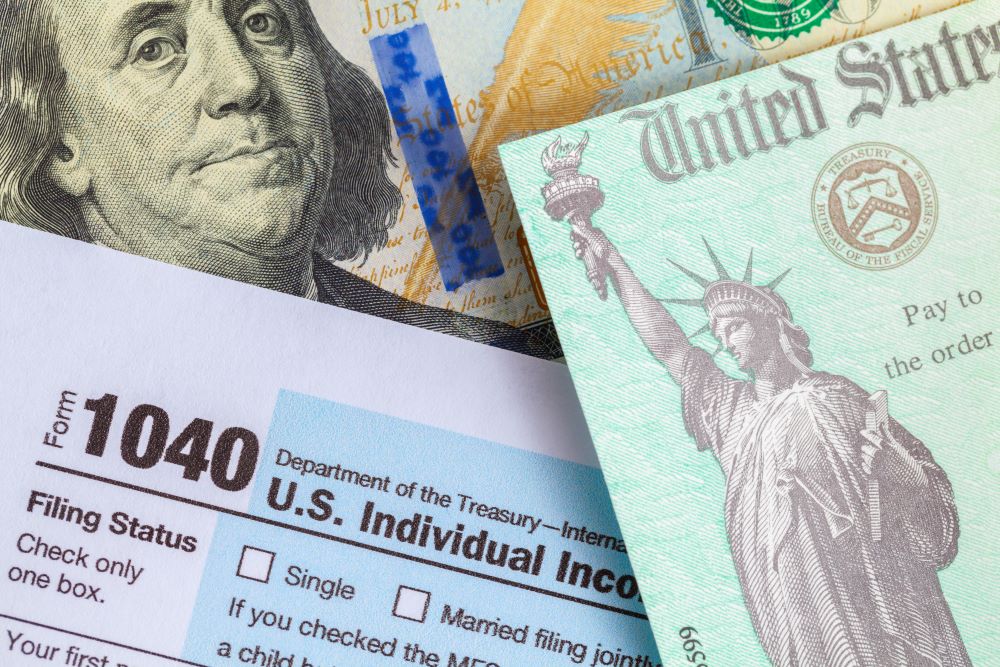Doing anything for the first time is usually a challenge. And when it comes to taxes, it can feel like an intimidating process. However, once you have a basic understanding of the paperwork you need and the things you can do to retain wealth, you will realize it’s simpler than it seems.
In this guide we cover what you need to know to help file your taxes for the first time.
Preparation Phase
One of the first things you have to do is collect the documents that directly contribute to your income tax returns. These documents may include the W-2s, 1099s, receipts and other tax forms that report on some type of your income. These can also be salary documents, dividend forms, and other payments you may have received. Once you have these forms, filing your taxes is basically a matter of reporting what is on them.
How Much Money Do You Have to Make to File Taxes?
Some of the factors that determine whether you have to file taxes are your age, your income and your marital status. Let’s look at whether or not you need to file a tax return in the first place.
Filing for Single Adults
Ages 18-64: If you are a single adult that is 18-plus years old with no dependents and are under the age of 65, then you have to file taxes once your gross annual income reaches $12,200. If your income falls below that threshold, then you are not required to file taxes.
Ages 65+: If you are above the age of 65 and are filing as a single adult without dependents on your income, then you have to file taxes once your gross annual income reaches $13,850. Again, anything below this income threshold doesn’t require you to file taxes.
Filing Jointly with a Partner
Ages 18-64: If you’re filing jointly with a partner and you are both below the age of 65, then you both have to be earning a combined $24,400 per year to file taxes.
Ages 65+: If both you and your partner are over the age of 65, then the minimum amount you have to make to become eligible for joint tax returns is $27,000. If either one of you is over 65 and the other is under that age threshold, then the minimum income is $25,700 to become eligible to file taxes jointly.
Filing Taxes as a Widow or Widower
If your partner passes away within the span of the current tax year, and you have a dependent, then you can still file taxes jointly as a married couple.
Do Students Have to File Tax Returns?
If you are a student earning over $12,200, then you are required to file taxes. This earning, however, should not include money that is given to a student by their parents. The student or minor can only file a tax return if his or her income is entirely earned by his or her own self through employment.
Deadlines, Penalties, And Extensions For Tax Filing
Now that we know who is required to file taxes, let’s discuss important dates and deadlines you should be aware of.
When Can I Expect the Documents I Need?
You can expect to receive the documents you need to report your income by January or early February of each year. The fiscal year starts in January, so this is when employers start dispatching documents from the previous year to their employees.
What is the Deadline for Submitting Taxes?
The IRS has already opened the tax filing season for this year. The deadline for submitting your tax documents to the government either in person or online is usually around mid-April. However, this year due to COVID-19 pandemic-related delays, the deadline has been extended to May 17.
What if You Miss the Deadline?
If you anticipate missing the deadline, you can buy yourself more time by requesting an extension. The extension can give you an additional six months to submit your tax return to the IRS on Oct. 15.
If you don’t end up filing taxes at all, then the penalties can include monetary fines, including cuts from the tax returns owed to you. The IRS charges a failure-to-pay penalty of 0.5% of the total amount of tax owed for every month or partial month that goes unpaid, up to a maximum of 25%. These cuts get progressively larger the more days and months you miss. So, it is good to stay on track and be organized with your records to get the best out of the tax filing process.
Understanding the Paperwork
You can find all the federal tax forms you need on the IRS website. Below is a list of the documentation most relevant to first-time filers.
1040
Form 1040 is the form individual taxpayers use to file their taxes with the IRS. With a 1040, you can report all types of income, expenses and credits. This form determines if you owe additional taxes or if you receive a tax refund. It also contains your personally identifiable information, including your name, address, Social Security number and the number of dependents in your household.
W-2
The W-2 is a form used by your employer to report to you and the IRS your wages and how much money has been withheld to pay for federal and state income tax, Social Security and Medicare. To ensure that you get it in time, your employer is required to send you a W-2 no later than Jan. 31 following the close of the tax year. You should only receive a W-2 if you are an employee. If you are an independent contractor, you receive an earnings statement on a Form 1099 rather than a W-2.
W-4
A W-4 form is a form you fill out when you first start a job. You give this form to your employer to help them figure out how much tax you’re likely to owe and thus, how much to withhold from your paycheck. Make sure to keep your W-4 updated whenever a big life transition happens that can affect your taxes. The IRS recommends updating your W-4 with your employer within 10 days of getting married, divorced or having a baby.
1099-MISC or 1099-K
If you’re an independent contractor, you should receive a 1099-MISC or 1099-K from any work you’ve done that has paid you over $600. It’s important to keep in mind that this form only lists your earnings. Contract workers don’t get taxes automatically deducted from their pay checks, so you have to pay any and all taxes due on these earning come tax season.
4868
The 4868 form is the deadline extension form. While this extension gives you more time to file your taxes, it does not give you more time to pay your taxes. If you need more time to pay your taxes, you can look into requesting a payment plan from the IRS.
Form 1098-E
This form is a student loan form that allows the IRS to deduct taxes based on the amount of interests you have paid for your tuition loans. You should receive this form from your student loan provider.
Common Deductions
Deductions and credits are terms that refer to ways you can pay less taxes. These are the most common:
Standard Deduction
A standard tax deduction is the portion of income not subject to tax that can be used to reduce your tax bill. They allow you to subtract certain expenses from your taxable income, which reduces your overall tax bill.
Tax Credit
Tax credits also reduce the amount of income taxes you owe to federal and state governments. Credits are designed to encourage certain types of behavior that are considered good for the economy, the environment or any other purpose the government considers important. Typically, tax credits cover expenses you have throughout the year that meet certain requirements.
Preparing and Filing Your Tax Return
Once you’ve got all the forms you need, preparing and filing your tax return can actually be straightforward. It’s usually a matter of just putting in information from your paperwork and sending that information to the state and federal government.
In fact, there are several online and offline services that can help you fill out the forms. However, if your taxes are more complicated, you can always look for other solutions like a professional tax preparer or even an accountant.
If you are using outside help like a tax preparer or an accountant to help you out with your tax filing, then make sure you trust them. Tax forms contain your personally identifiable information and, if mishandled, can lead to identity theft and fraud. So just make sure your information is handled safely and professionally.
*IDIQ® is NOT a tax preparing or accounting service and does not offer tax or legal advice.











